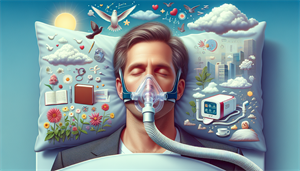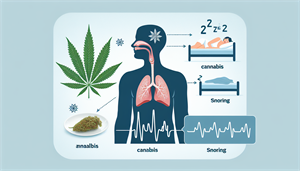
How Jordan Peterson Deals With His Sleep Apnea
Imagine, for a moment, the struggles of a renowned psychologist and professor, Jordan Peterson. Sleep apnea, a severe condition, has been a battle for him. How can someone so knowledgeable in human behavior and mental health find themselves facing such a debilitating condition?
In this article, we will follow Jordan Peterson's journey with sleep apnea, discover the importance of sleep for overall well-being, and uncover alternative treatments and lifestyle changes that can help improve sleep quality and combat sleep apnea.
Key Takeaways
Jordan Peterson’s battle with sleep apnea has highlighted the need to recognize and manage it effectively. CPAP machines are an effective treatment, while lifestyle modifications such as nasal breathing techniques, proper tongue positioning and diet/exercise can also help improve sleep quality. Sleep is essential for physical & mental health. Prioritizing it through lifestyle changes can create a foundation for success.
Jordan Peterson's Battle with Sleep Apnea
Jordan Peterson, a prominent psychologist and professor, has been dealing with various health issues, including depression and anxiety that did not respond well to treatment, as well as obstructive sleep apnea. His struggle with sleep apnea led to the discovery of its significant impact on mental health and overall well-being. Peterson’s journey began with his assistant suspecting that both obstructive sleep apnea and central sleep apnea could be the root of his health problems.
Jordan Peterson on Russell Brand's podcast, talking about his sleep apnea. "I was diagnosed with sleep apnea, severe sleep apnea, and so now I have a machine. And now I'm actually getting some sleep for the first time, in who knows how long, 10 years." In his search for solutions, he came across the work of Dr. Mike Mew, an expert in the field of sleep and facial growth, as well as insights from Russell Brand on the importance of mental health.
Dr. Mike Mew goes into detail on Peterson's facial features and how they could cause his sleep apnea in a podcast episode. Peterson’s experience emphasizes the necessity of tackling and managing sleep apnea.
The Diagnosis
The process of diagnosing Jordan Peterson’s sleep apnea began with recognizing the indications of the condition.
Common symptoms of sleep apnea include: Severe exhaustion, Somnolence during the day, Peevishness, Exaggerated somnolence during the day, Boisterous snoring, Difficulty in nasal breathing.
These symptoms alerted Peterson’s assistant to the possibility of sleep apnea as the root of his health issues. Malocclusion, a risk factor often overlooked by medical professionals, was also found to be associated with Peterson’s sleep apnea.
Malocclusion is linked to underdeveloped jaws, which can lead to obstructive sleep apnea and chronic fatigue. The diagnosis of sleep apnea was a turning point in Peterson’s journey, as it allowed him to seek appropriate treatment and understand the connection between sleep apnea and his mental health.
Treatment: CPAP Machine
Upon being diagnosed with sleep apnea, Jordan Peterson began using a CPAP (Continuous Positive Airway Pressure) machine to manage his condition. A CPAP machine is a medical device used to treat sleep apnea by delivering pressurized air through a mask, which helps keep the airway open during sleep and allows for normal breathing. The use of a CPAP machine can result in enha


